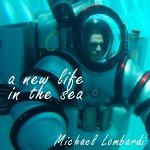 Another week behind me means another 35+ hours of accumulated time at the bottom of the sea. Yes, literally. While most would consider this a glamorous career, or even something out of Hollywood, it’s anything but…most of my days are spent in muddy harbors in pitch black water with close to no visibility whatsoever. Now of course, I’m not exactly complaining either…
Another week behind me means another 35+ hours of accumulated time at the bottom of the sea. Yes, literally. While most would consider this a glamorous career, or even something out of Hollywood, it’s anything but…most of my days are spent in muddy harbors in pitch black water with close to no visibility whatsoever. Now of course, I’m not exactly complaining either…
It’s quiet, peaceful when things go right, and helps keep life at the surface in perspective. But there is always a B-U-T to the story, and that is what I am now referring to as ‘aquatic atrophy’.
Decompression sickness, or ‘the bends’, is the result of our bodies’ tissues releasing inert gasses that were absorbed under pressure at a rate that is too fast for our bodies to tolerate. This results in gas bubbles literally being trapped in joints, tendons, bones, or worse places such as the tissues of the central nervous system. No matter where the bubbles take shape, it isn’t good. They can cause long term damage to soft tissues and even degrade bone. Now for the divers out there, you well know that decompression limits are a function of both time and depth. One gray area however is very shallow water, where theoretical no decompression limits are infinite according to various dive tables, including those of the US Navy.
I can tell you from personal, and daily experience, that 7 hours a day spent in 30 feet or less – even 15 feet or less – day after day, will beat you up from the inside out. There are no tables or dive computers that will hold this extreme shallow water activity against you, so is it OK, or not so OK? You are indeed under pressure, so surely DCS must be a consideration, yes?
Well, I recently corresponded with the Divers Alert Network to inquire about the effects of shallow water saturation on the human body. From their research, no ill effects have been recorded. So, why the daily fatigue and overall feeling of being beat down and 30 years older than I am? Perhaps it’s the constant working through a resistive media (water), or being cold every day, or breathing against a regulator for long periods of time, or just plain working hard.
My theory of ‘aquatic atrophy’ is that lengthy exposure to the subaquatic medium lends itself to our bodies physically adapting to reach maximum efficiency underwater, and losing effectiveness here on land. Being weightless for the majority of the work day, I truly have a difficult time carrying myself when I get out of the water. I slouch, ache, and feel weak when moving around. Underwater, I can move mountains. It is as though my working muscles are specifically developed for working hard in a weightless environment, and the muscles used for posture are deteriorated from not being used. Crazy? It may sound a bit off the deep end, but I welcome any of you to spend a year (some 1500+ hours underwater) in my shoes and see for yourself.
In the grander scheme of things, while aquatic atrophy may not be beneficial for those of us splitting time above and below the sea, this hint at the ability for humans to adapt and evolve to an underwater existence is reassuring – as basic human needs may very well soon be sought with a newly found life in the sea.


 ShareThis var shared_object = SHARETHIS.addEntry({ title: document.title, url: document.location.href});shared_object.attachButton(document.getElementById(“ck_sharethis”));shared_object.attachChicklet(“email”, document.getElementById(“ck_email”));shared_object.attachChicklet(“facebook”, document.getElementById(“ck_facebook”));shared_object.attachChicklet(“twitter”, document.getElementById(“ck_twitter”));Related articles by Zemanta
ShareThis var shared_object = SHARETHIS.addEntry({ title: document.title, url: document.location.href});shared_object.attachButton(document.getElementById(“ck_sharethis”));shared_object.attachChicklet(“email”, document.getElementById(“ck_email”));shared_object.attachChicklet(“facebook”, document.getElementById(“ck_facebook”));shared_object.attachChicklet(“twitter”, document.getElementById(“ck_twitter”));Related articles by Zemanta
- The specialty of underwater medicine, and an interview with a dive physician (kevinmd.com)
- strong in the water (anewlifeinthesea.blogspot.com)
- when the blue is blacker than black (anewlifeinthesea.blogspot.com)


![Reblog this post [with Zemanta]](https://img.zemanta.com/reblog_e.png?x-id=4037e3d0-a64e-4e84-86ed-73e18e35cb47)